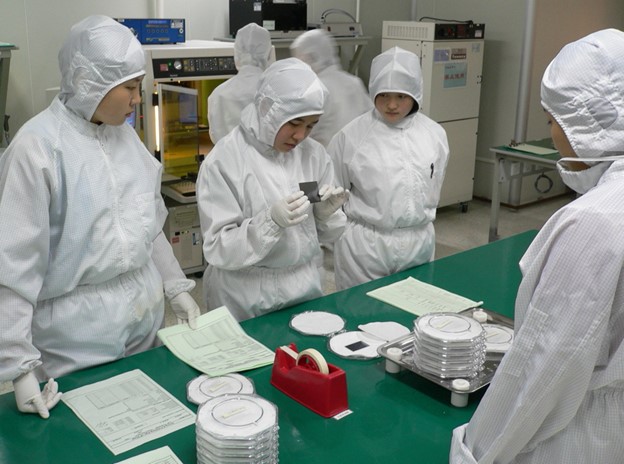Once the founder of a wearable computing startup, Arye Barnehama understands the toils of manufacturing consumer devices. He moved to Shenzhen in 2014 to personally oversee production lines for his brain waves-monitoring headband, Melon.
It was an experience that left an impression: manufacturing needed automation.
His next act is Elementary Robotics, which develops robotics for manufacturing. Elementary Robotics, based in Los Angeles, was incubated at Pasadena’s Idealab.
Founded in 2017, Elementary Robotics recently landed a $12.7 million Series A round of funding, including investment from customer Toyota.
Elementary Robotics is in deployment with customers who track thousands of parts. Its system is constantly retraining algorithms for improvements to companies’ inspections.
“Using the NVIDIA Jetson edge AI platform, we put quite a bit of engineering effort into tracking for 100 percent of inferences, at high frame rates,” said Barnehama, the company’s CEO.
Jetson for Inspections
Elementary Robotics has developed its own hardware and software for inspections used in manufacturing. It offers a Jetson-powered robot that can examine parts for defects. It aims to improve quality with better tracking of parts and problems.
Detecting the smallest of defects on a fast moving production line requires processing of high-resolution camera data with AI in real time. This is made possible with the embedded CUDA-enabled GPU and the CUDA-X AI software on Jetson. As the Jetson platform makes decisions from video streams, these are all ingested into its cloud database so that customers are able to observe and query the data.
The results, along with the live video, are also then published to the Elementary Robotics web application, which can be accessed from anywhere.
Elementary Robotics’ system also enables companies to inspect parts from suppliers before putting them into the production line, avoiding costly failures. It is used for inspections of assemblies on production lines as well as for quality control at post-production.
Its applications include inspections of electronic printed circuit boards and assemblies, automotive components, and gears for light industrial use. Elementary Robotics customers also use its platform in packaging and consumer goods such as bottles, caps and labels.
“Everyone’s demand for quality is always going up,” said Barnehama. “We run real-time inference on the edge with NVIDIA systems for inspections to help improve quality.”
The Jetson platform recently demonstrated leadership in MLPerf AI inference benchmarks in SoC-based edge devices for computer vision and conversational AI use cases.
Elementary Robotics is a member of NVIDIA Inception, a virtual accelerator program that helps startups in AI and data science get to market faster.
Traceability of Operations
The startup’s Jetson-enabled machine learning system can handle split-second anomaly detection to catch mistakes on the production lines. And when there’s a defective part returned, companies that rely on Elementary Robotics can try to understand how it happened. Use cases include electronics, automotive, medical, consumer packaged goods, logistics and other applications.
For manufacturers, such traceability of operations is important so that companies can go back and find and fix the causes of problems for improved reliability, said Barnehama.
“You want to be able to say, ‘OK, this defective item got returned, let me look up when it was inspected and make sure I have all the inspection data,’” added Barnehama.
NVIDIA Jetson is used by enterprise customers, developers and DIY enthusiasts for creating AI applications, as well as students and educators for learning and teaching AI.
